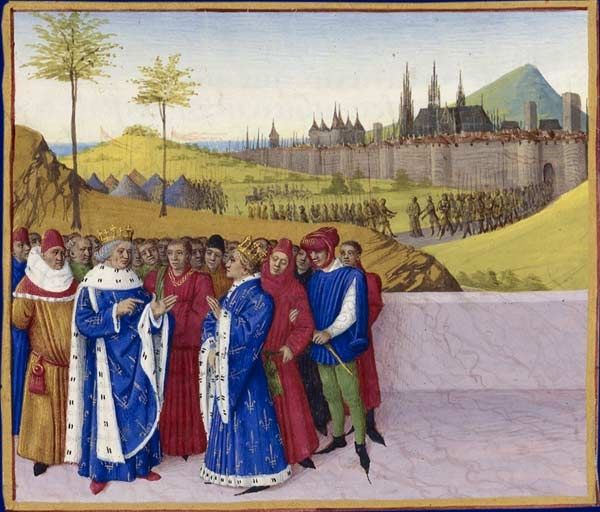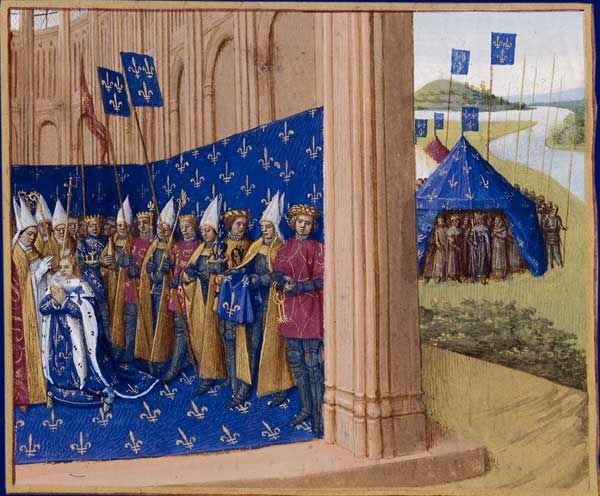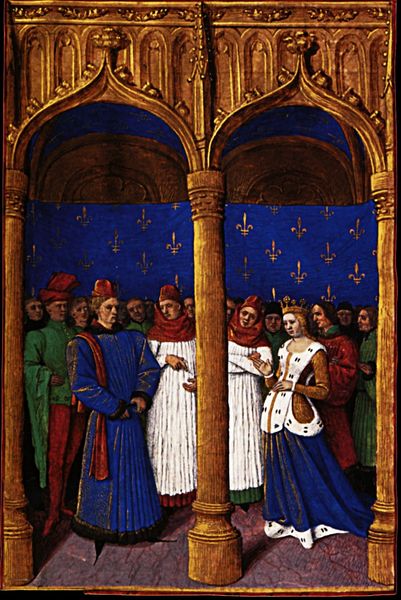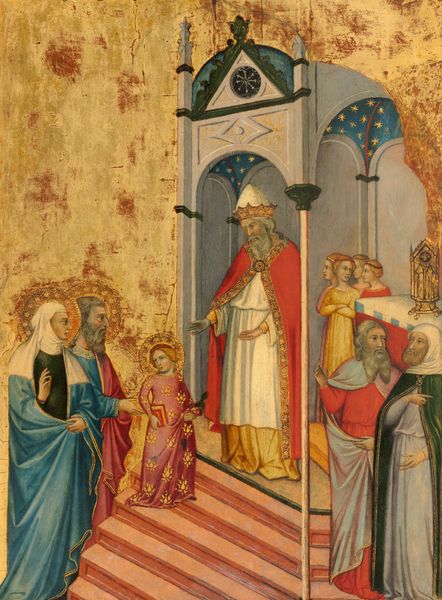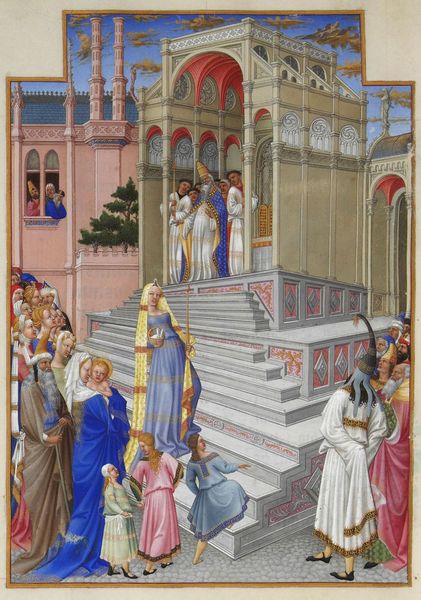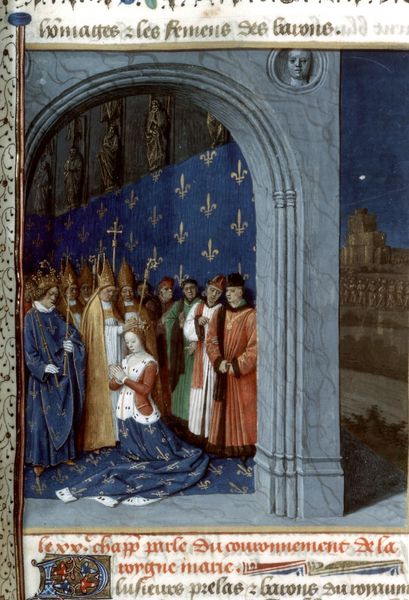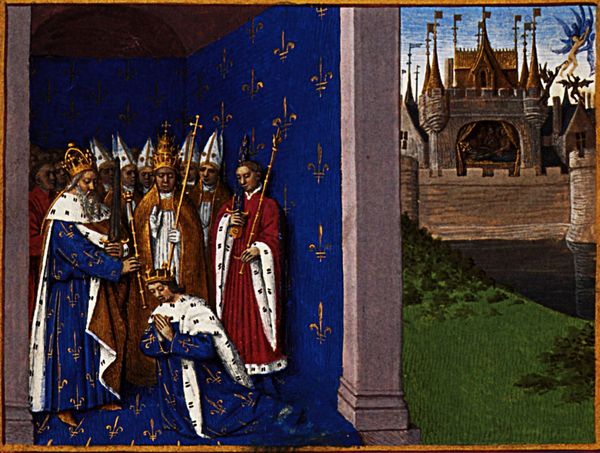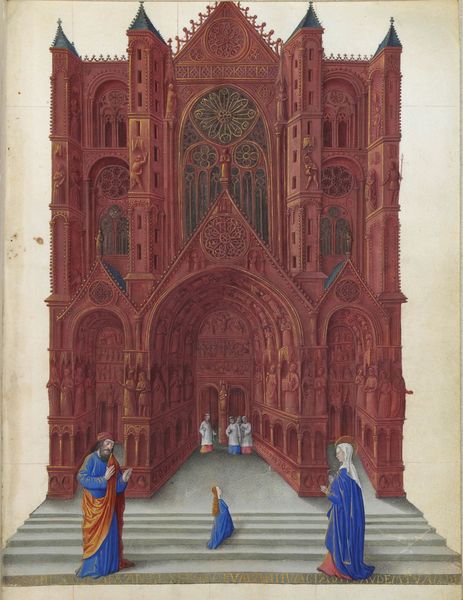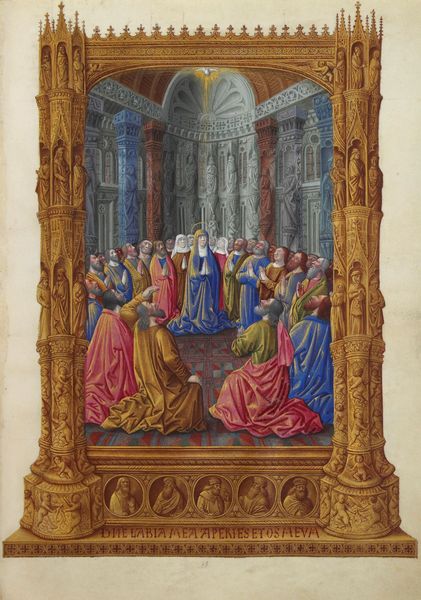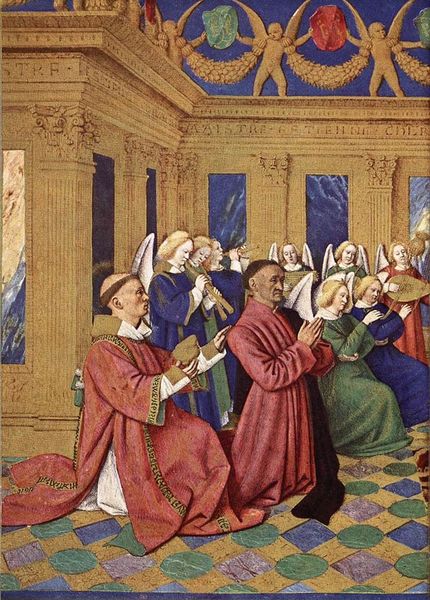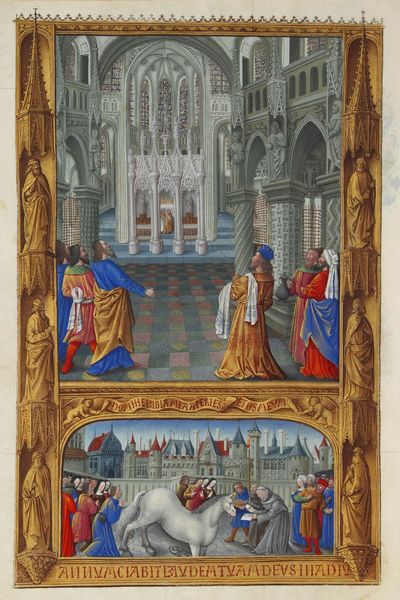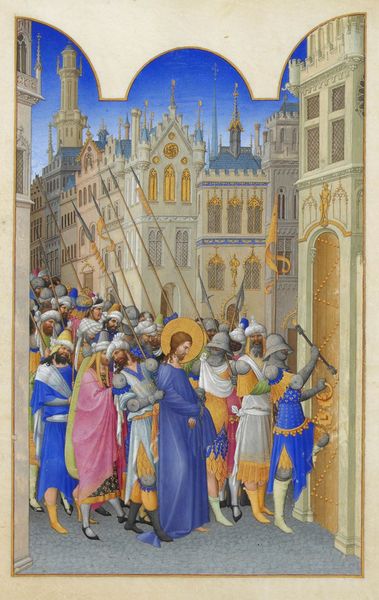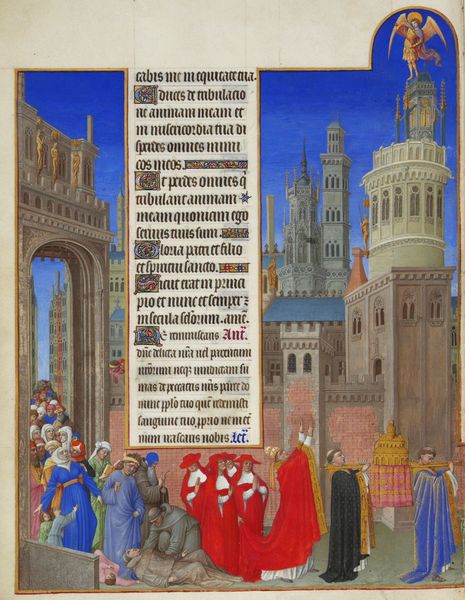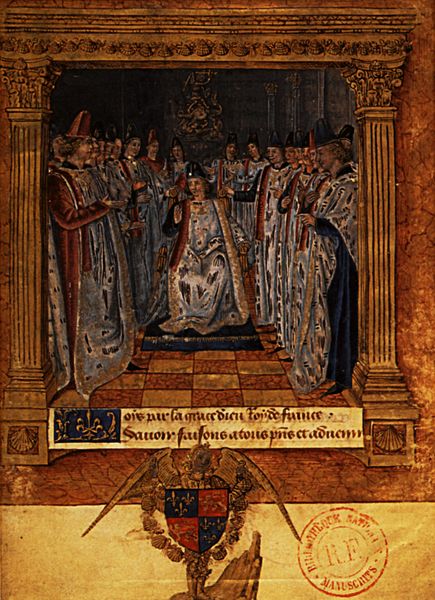
tempera, painting
#
portrait
#
medieval
#
narrative-art
#
tempera
#
painting
#
figuration
#
history-painting
#
international-gothic
Copyright: Public domain
Jean Fouquet made this illumination of Clovis II in the 15th century, employing pigments on vellum. The work's small scale speaks to its original function as a page in an illuminated manuscript, likely commissioned by a wealthy patron. Consider the lapis lazuli used to create the vibrant blues of Clovis' robe. The pigment was derived from mines in Afghanistan, ground into powder, and painstakingly applied. The gold leaf of the throne and crown, required specialized skills to hammer the metal thin enough, and affix it to the page. The controlled application of these precious materials conveys status. Fouquet also demonstrates incredible control over the quill, creating fine lines to define the figures, as well as the architecture. By focusing on the labor, cost, and skill involved in its creation, we can understand how this small painting reflects a world of trade, power, and faith.
Comments
No comments
Be the first to comment and join the conversation on the ultimate creative platform.
